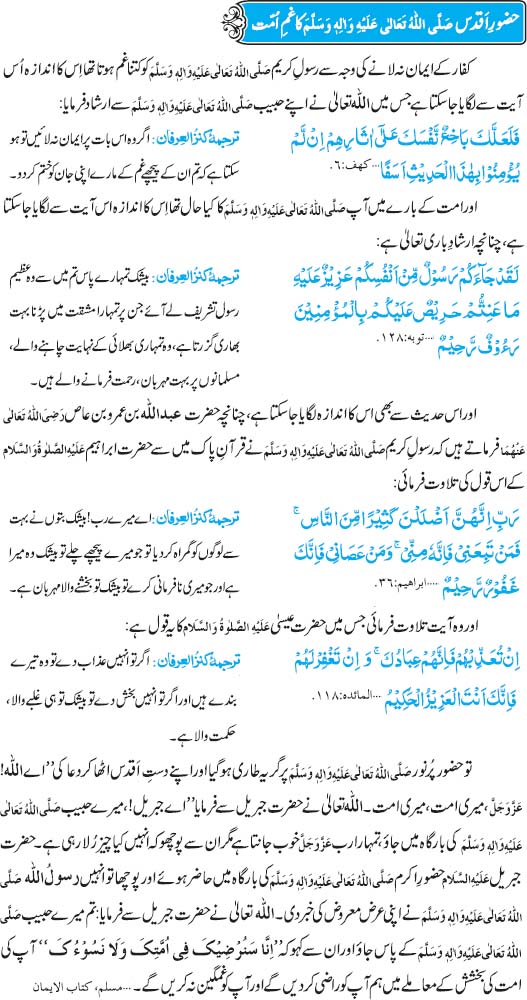Allah SubHanuhu wa Ta’ala says in the Holy Qur’an, “If your fathers, and your sons, and your brothers, and your wives, and your tribe, and your acquired wealth, and the trade in which you fear a loss, and the houses of your liking – if all these are dearer to you than Allah and His Noble Messenger and fighting in His way, then wait until Allah brings about His command; and Allah does not guide the sinful.” [Surah Tauba: 24]
This verse demonstrates encouragement, advice, proof, and an indication of the necessity to love Prophet Muhammad (SallAllaho Alaihi wa Sallam). It is also sufficient to prove that this duty is of tremendous proportion. It is an obligation and the right of the Prophet, SallAllaho Alaihi wa Sallam.
You will have observed how Allah SubHanuhu wa Ta’ala reprimands those whose love of relatives and property is dearer to them than Allah and His Messenger, SallAllaho Alaihi wa Sallam. Allah SubHanuhu wa Ta’ala concludes His warning with the threatening words, “then wait until Allah shall bring His command.” And from this it is understood that those whose love is other than for Allah and His Messenger SallAllaho Alaihi wa Sallam, are astray and are not guided by Allah.



